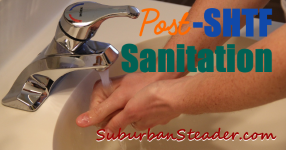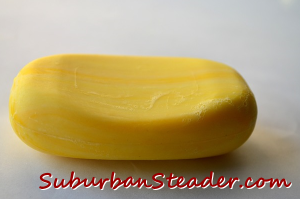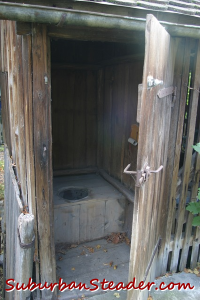
Hurricane season is quickly approaching here on the East Coast. Unfortunately, for many East Coasters, these storms are common weather phenomenons that impact the lives of millions each year. Depending on where you live, some of the destruction caused by them may result in local flooding. The impacts of such an event can be widespread, and one of the major consequences of flooding can be poor sanitation.
Natural Disaster Preparedness
Let’s spend a few minutes talking about natural disaster preparedness before we get neck deep in SHTF sanitation.
Ideally, in a situation like a hurricane, you have the basics on hand. That would be water, foodand communication. Water and food are obvious for survival situations. Communication can be a tricky one. The idea is to know what’s going on around you. It may mean having something as simple as a pocket radio to something more complex like a HAM radio.
Cleanliness Is Key
Beyond the food, clean drinking water and communication, you should also be ready to keep yourself clean and sanitary.
It’s important, especially if you have children or elderly people, to make sure that you don’t create or spread disease around your living area.
There are three key items you’ll want to clean regularly and consider:
- Yourself and other people in your group.
- Your eating utensils and dishes.
- Your living quarters and sewage.
Keeping these three categories clean and sanitary will be key to long-term survival and well-being.
Post SHTF Sanitation Supplies
You should already have soap and basic cleaning supplies in the stockpile of supplies you have, but do you have enough?
 I could make a claim about how much soapto store, but the best way to track that is through tracking your own usage. For me and my family, a single bar of soap per person should last a month or more when you consider using the soap with conservation in mind. Check on how much soap you use on a normal basis, and then assume that you can use a considerable amount less if you have to.
I could make a claim about how much soapto store, but the best way to track that is through tracking your own usage. For me and my family, a single bar of soap per person should last a month or more when you consider using the soap with conservation in mind. Check on how much soap you use on a normal basis, and then assume that you can use a considerable amount less if you have to.
A good all-around soap can work wonders in a variety of applications, and there’s no reason you can’t use one type of soap to wash all the essentials. Just be careful about the scent since your probably don’t want to clean your dishes with soap that has a musty scent.
By adding some extra water, along with plenty of soap and vinegar to your stock of supplies, you will be able to have a safe and sanitary area.
Washing Yourself
While the accepted rule of thumb is to keep one gallon of water per person per day in storage, this does not include enough water for real sanitation.
It is plenty for cooking, eating, and drinking, but not for washing.
keeping yourself clean is of the utmost importance if you are in a hotter climate or are engaged in a lot of physical activities. Depending on your living conditions and level of activity, you may want to wash yourself every day. However, it is possible only to wash every other day. That is a call you can make yourself.
Despite the necessity of keeping clean, this is one of the areas when you can save some water. By wetting a washrag and then lathering it up instead of taking a shower or bath you can cut down on the water needed drastically.
Washing the three essential areas is not only a key to sanitation, but also to a healthy existence. The three essentials are the genitals, rear end and face. This probably goes without saying, but make sure you have separate washrags for your face.
Washing is even more important if you have a group with you. Be sure to have children keep themselves clean and check the elderly regularly as well. If anyone is incapacitated, move them when possible to prevent bed sores and ensure that they get the washing and attention needed to keep them as healthy and clean as possible.
Utensils and Dishes
While it may make a lot of sense to use disposable or burnable dishes and utensils, some things you are just going to have to wash. Chances are you’ll have a few pots and pans and other such things around if you’re hunkered down and able to stay put for a while.
A good way to cut down on the amount of dishes you need to wash is to cook in cast iron. Cast iron pans will last virtually forever and require almost no water to wash and sanitize.
However, if your pot and pan selections do require cleaning, there are a couple of ways to keep them clean without using too much water. Add dish soap to a spray bottle of water and you can limit the amount of soap and water needed. The spray action of the bottle will provide the suds and water needed to wash the pans.
You can make you supplies of soap and water last a lot longer by only spritzing the pans a few times to get them moist and allow the soap to do its thing.
Another great, inexpensive option is to keep a jug of bleach around. You can keep a spray bottle of diluted bleach around for sanitizing surfaces. Be sure to mix to the right strength since the concentration of the bleach can vary by brand.
Living Quarters
There’s more to being sanitary than just washing your dishes and keeping yourself clean. You can’t live in filth and still consider yourself clean, no matter how much you wash.
Besides the normal dirtiness of living in a post SHTF world, you are responsible for cleaning your filth as well. Keeping your living quarters clean is a necessary step for any long-term survival. Try to keep your food crumbs picked up so they don’t attract pests. Many illnesses can be traced back to rodents and other pests getting into the food or living area.
Another thing to consider is dealing with sewage…
No innovation in the past 200 years has done more to save lives and improve health than the sanitation revolution triggered by invention of the toilet.
– Sylvia Mathews Burwell
One of the best ways to keep sanitary is to use existing plumbing (i.e. the toilet) or an outhouse. Don’t forget that you can use nonpotable water for manually flushing the toilet.
If the grid is down or you have limited access to sanitary facilities, then your best option may be an outhouse.
If you end up using an outhouse, there are a few considerations to keep in mind.
 Location: An outhouse needs to be at least one hundred and fifty feet away from any source of drinking water.
Location: An outhouse needs to be at least one hundred and fifty feet away from any source of drinking water.- Hole Depth: Studies have found that users of outhouses are more likely to get tapeworms. This is because most outhouses are not dug deep enough. A tapeworm can move through the soil almost five feet, so a shallow outhouse will allow the worms and possibly other pests to reach the surface and will raise the chances of exposure.
- Toilet Paper: Depending on the scenarios that you are planning for makes a pretty big difference in the amount of toilet paper that you will need to keep in stock. We usually keep a healthy amount of toilet paper around anyway since we buy in bulk from Costco.
Summary of SHTF Sanitation
Keeping yourself and your group clean and healthy must be one your top priorities. What’s the point of surviving a disaster only to be struck down by a preventable disease? By adding plenty of soap and some extra water to your stockpile you can be clean and healthy.
If you think about the following, then you and your family will be in good shape:
- Store a little extra water, soap, and some wash rags.
- Have a plan for cleaning your plates, utensils, or other kitchen implements.
- Store some toilet paper.
